Posted by Selena Travel / 07 27, 2024
When people think of Mongolia, they probably think immediately of Chinggis, or Genghis Khan, the famous conqueror. They may also think of the Gobi Desert, or the vastness of the countryside.
For travelers interested in visiting exciting and remote spots, Mongolia is a great destination. Unfortunately, you may not know anyone who has ever been. It can be hard to figure out where to go in Mongolia. Lucky for you, I have compiled a list of where to visit in Mongolia, and things to see in Mongolia that will not disappoint you.
Known in Mongolian as the Ulaan Ereg, or Red Cliffs, the Flaming Cliffs are located in the Gobi Desert. The American paleontologist Roy Chapman Andrews gave the cliffs their memorable name in his expeditions of the country in the 1920s. He was exploring for dinosaur bones, and in the evening, everyone noticed how the sun lights up the sandstone cliffs. The cliffs brilliantly glow red and orange.
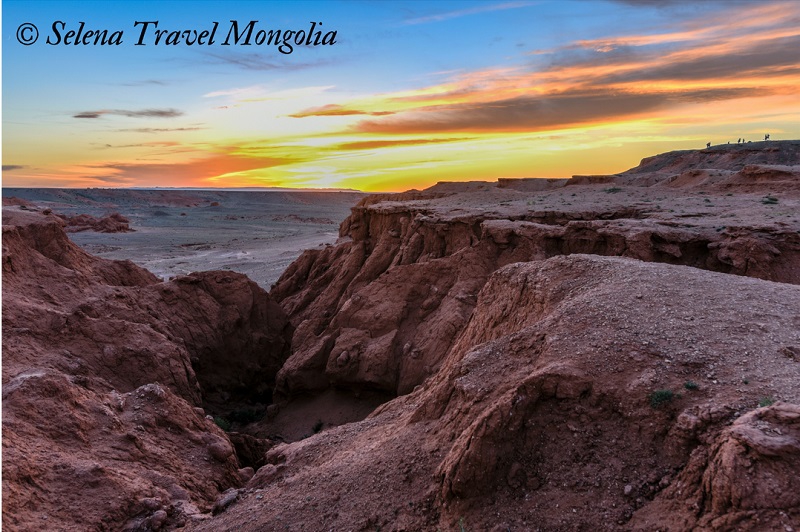
This site is especially interesting for people interested in Natural History, as this is the location dinosaur eggs were first found. Roy Chapman Andrews found them on his expedition, which was one of the first American trips to Mongolia. Velociraptor, Oviraptor, Protoceratops, and other dinosaurs have all been found around the cliffs.
Just make sure not to take any fossils; the book the Dinosaur Artist by Paige Williams tells the story of Mongolian fossils taken without permission. Take a lot of beautiful pictures though, and stay in a ger camp nearby instead!
“The Monastery of Tranquil Felicity” is one of the three largest Buddhist monastic centers in the whole of Mongolia. The monastery is the final resting place of the artist-monk Zanabazar, who led a Mongolian artistic renaissance. A Manchu emperor commissioned the beautiful building to house Zanabazar’s final remains in 1727.
He was well recognized for his artistic contributions to Mongolian and Buddhist life. The temple complex expanded well past its initial buildings.
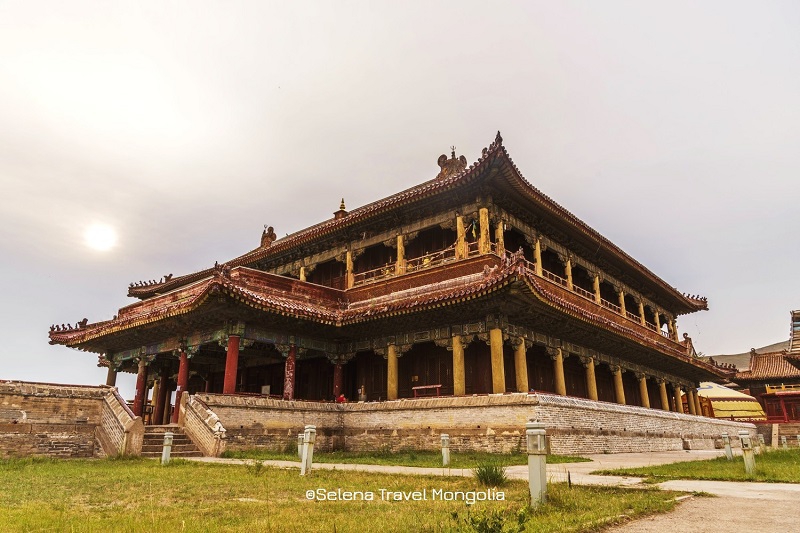
There were over 40 temples, symmetrically laid out in the area of important trade routes. During the Communist era of Mongolian history, many monasteries were destroyed. Happily, the Amarbayasgalant monastery survived, with some monks hiding treasures before they were looted. The charming complex is still being reconstructed, though they have a good start with 28 temples left.
The monastery is located in Northern Mongolia, 60 miles northeast of Erdenet. While it may take a little while to get there, Erdenet is a very modern city, and makes a good base of operations. A visit to the Amarbayasgalant monastery is included in these group tours:
- North & Central Mongolian explorer tour
One of the oldest lakes in the world, Lake Khuvsgul is a sight to behold. The lake’s colors range from aquamarine to the deepest blue, depending on cloud cover and season. Khuvsgul is the largest lake by volume in Mongolia and lies in the northwest part of the country. The lake is connected via river to Lake Baikal, in Russia, another ancient lake.
The taiga, an evergreen forest that stretches over Siberia, surrounds the lake in larch trees – coniferous trees that actually lose their needles in the wintertime. The waters are clear and pristine, and apparently clean enough to drink without any treatment. There are a growing number of ger camps and cabins along the shore. If you prefer a more remote stay, it’s possible to camp in the area.
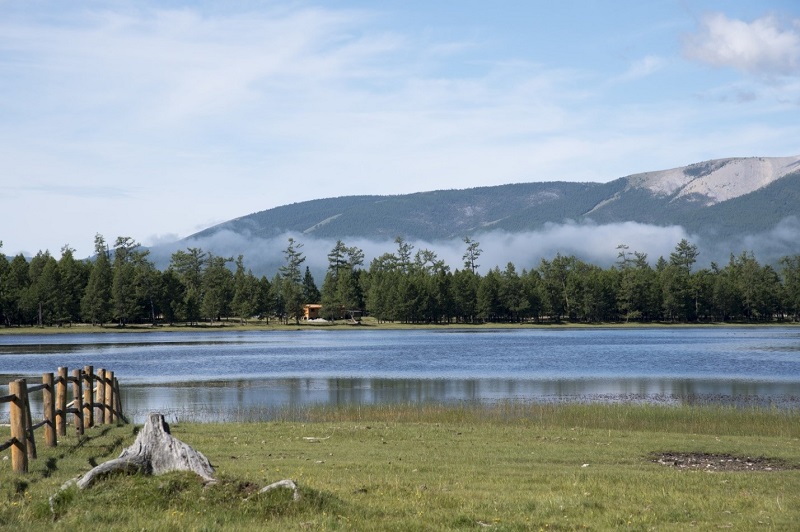
The lake is home to the Ice Festival in late February and March, when the surface freezes. If you’re brave enough to face the minus 45-degree temperatures, you can see amazing ice sculptures and musical performances. If you go a little farther north, you can find the Tsaatan people, who survive on and with reindeer in the far North.
It is included in the most of Mongolia tours such as North & Central Mongolian explorer tour, Discover True Mongolia tour, and Blue Pearl Baikal & Golden Gobi tour.
If you’ve read the Secret History of the Mongols, and want to see some of the sites where Chinggis Khan lived, Khan Khentii Strictly Protected area is the place for you. This is where Temujin, the man who would become Chinggis Khan, was born and grew up. It is also likely where he was buried. This beautiful nature preserve boasts a sacred mountain, and hunting and mining are forbidden here. The taiga is very well preserved here.
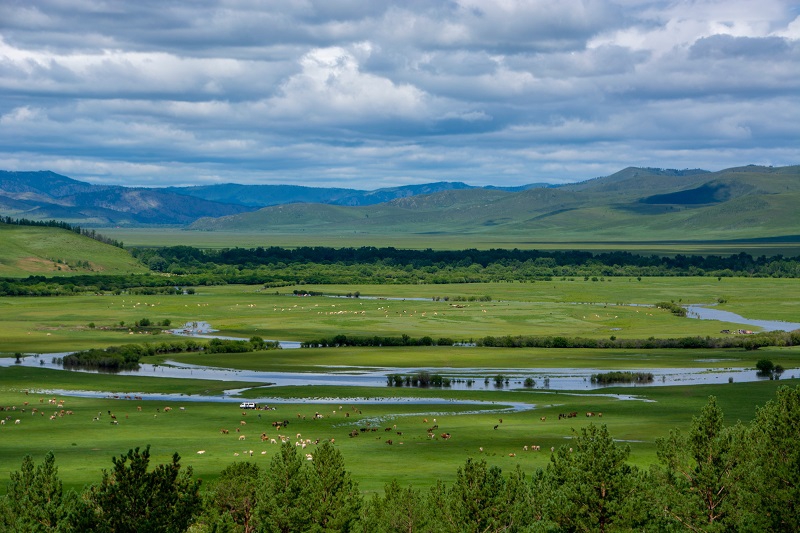
This area is tightly controlled by the government, but not impossible to get in, though the nature here is tempting enough to entice anyone to visit. Visiting the spots where Temujin’s life events happened is an amazing experience; you can see what it was like where his family set up camp, and where he fought his older brother for dominance of the family. Travel to the National Park with Selena Travel on departure, Genghis Khan's Birthplace group tour.
Out in western Mongolia, in the first weekend of October, you can find hundreds of people gathered on horseback. Most of them are Kazakh eagle hunters. The Kazakhs are an ethnic group that live in the Bayan-Olgii province, as well as in nearby Kazakhstan. They are a nomadic civilization, like the Mongols, but traditionally they practice Islam.
The Eagle Festival is a chance for eagle hunters to show off their skills. The hunters compete to catch small animals, like foxes and hares. They use golden eagles to hunt with, capturing them in the wild. The hunter and the eagles form a strong bond.
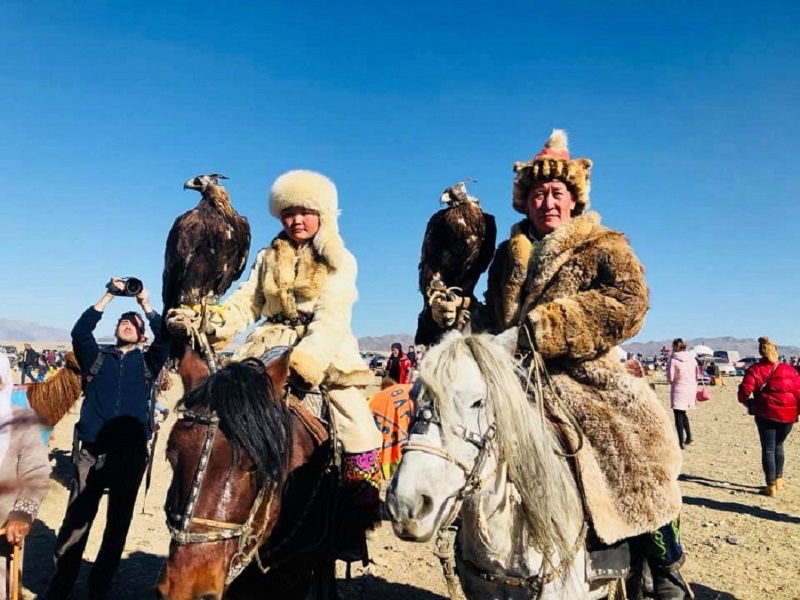
One of the competitions is eagle calling, where a hunter on horseback calls his eagle down from the top of a hill. These can go awry, as the eagles can be distracted and end up choosing to get a small animal instead of visiting their owner. A 2016 documentary called The Eagle Huntress showcases the story of a young lady, Aisholpan, who took up the sport. She often makes an appearance at the Eagle Festival.
These geographic natural wonders are called the “Singing Dunes”. The way the wind blows over the dune produces a sound like an airplane’s engine. It is especially noticeable on a windy day. These dunes are also almost a kilometer tall, providing some great views of the desert.
Located in the Mongolian Gobi Desert, in the southern part of the country, the lonely desert will make you appreciate civilization, or never want to go back! Just be careful to not lose sight of your travel group; the Singing Dunes have been known to get many a traveler hopelessly lost.
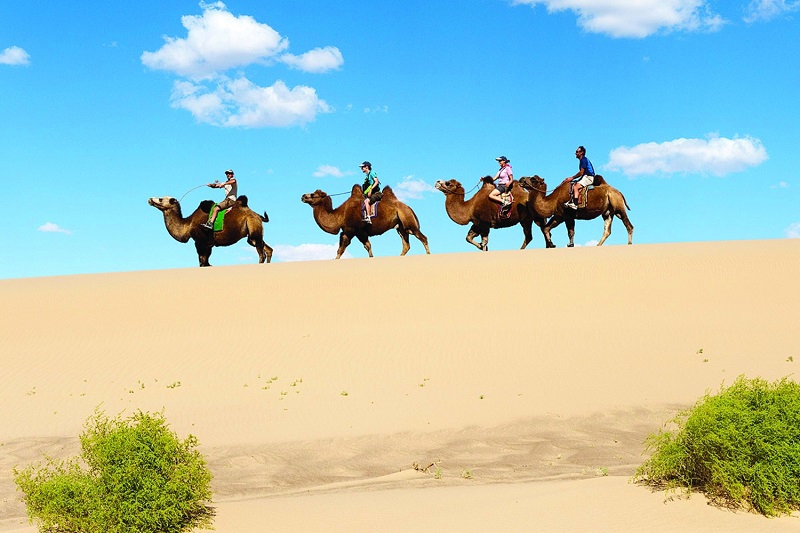
Selena Travel offers a variety of small group tours that include a stop at the Khongor sand dunes:
7. HUSTAI NURUU NATIONAL PARK
For a great example of the steppes that run over much of Central Asia, visit Hustai Nuruu. Located only 100km from Ulaanbaatar, you can see over 200 species of birds, over 40 mammals, and the elusive Przewalski’s horse.
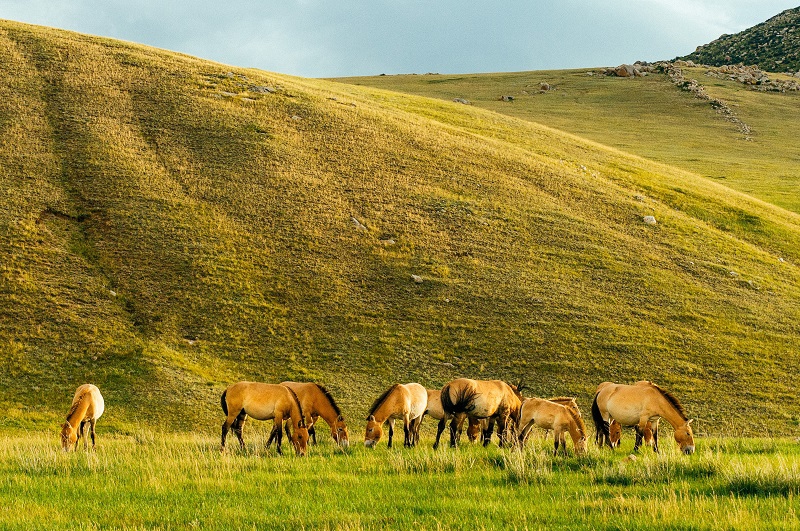
These are Earth’s last wild horses, and were thought to be extinct in the wild by the 1960s. After a successful reintroduction, Hustai Nuruu is the place you can most easily see the wild horses. There is also a lovely ger camp to stay in if you want to try and catch them in the morning. You’re more likely to see them anyway, and the food is pretty good! Click here and book a tour to Hustai National Park!
These traditional games are the “three games of men” and sort of like the Mongolian Olympics. The three games are wrestling, archery, and horse racing. There are many naadam festivals all over the country, but the biggest is in Ulaanbaatar.
The games originated as a way for Mongolian warriors to hone their skills in battle. Khuushuur, which is like a deep-fried lamb hot pocket, and airag, fermented mare’s milk, are the foods most closely associated with the festival. Check out our Mongolian Naadam Festival tours happening in 2020!
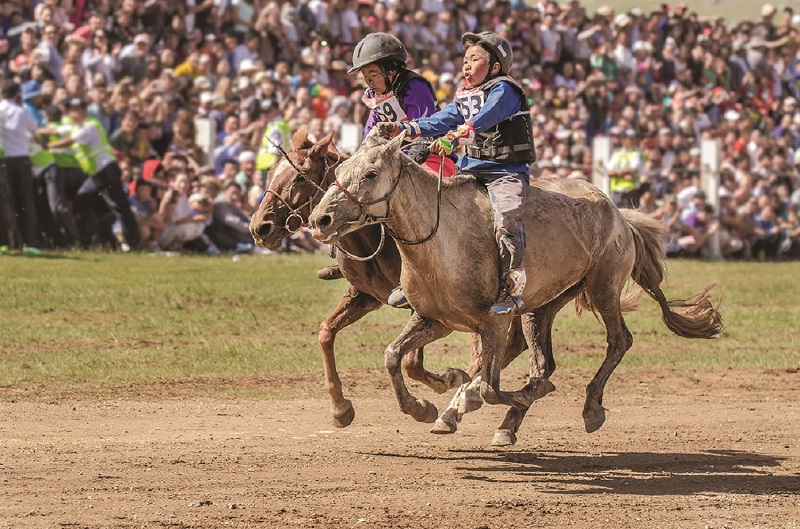
For those interested in History, the Khalkhin Gol is an interesting area. In far Eastern Mongolia, there were several long battles where the Mongolian and Soviet Union armies fought off the Japanese at the beginning of World War II.
The Japanese were interested in moving into Russia from the base of their controlled Manchuko. They encountered stiff opposition. The Japanese military turned away from a policy of controlling Siberia and its resources to instead take over Southeast Asia. The battlegrounds are still littered with tanks and destroyed material. If you’re looking to travel to Eastern Mongolia, contact Selena Travel Mongolia.
Mongolia’s capital is a likely stop for anyone visiting the country. It’s the transit hub for most travelers and boasts a lot to do. It’s well worth spending a day or two here before heading out to any of the other places.
There are many restaurants with amazing views of the city, an amusement park, and museums to give context to your travels in Mongolia. While here you can stock up on supplies, visit the many malls and catch a movie.
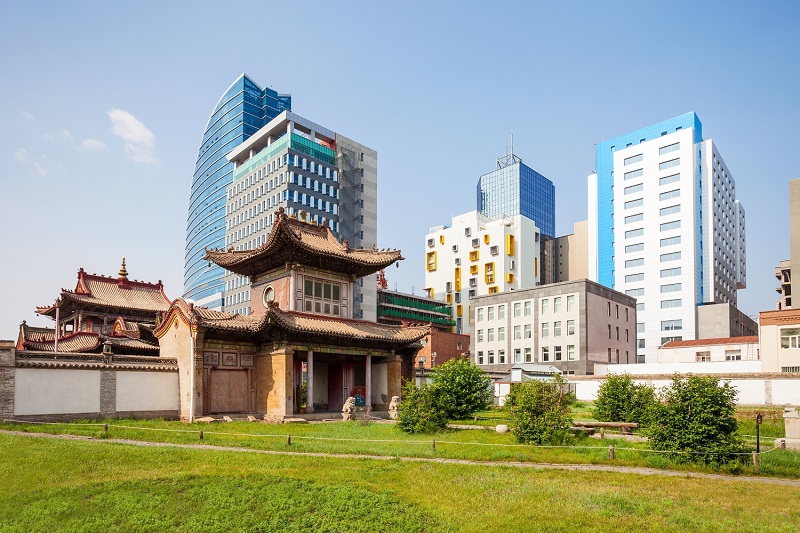
These are just some of the top things to do in Mongolia. There are many other things that didn’t make the list, like hiking the Altai Mountains, fishing in the rivers, or visiting any of the many monasteries. There are many things to see in Mongolia, and the helpful and lovely locals would love to show you around!
You can take a look at our scheduled upcoming departures, click here and see the calendar. If you would arrange a private or customized tour just contact Selena Travel Team!